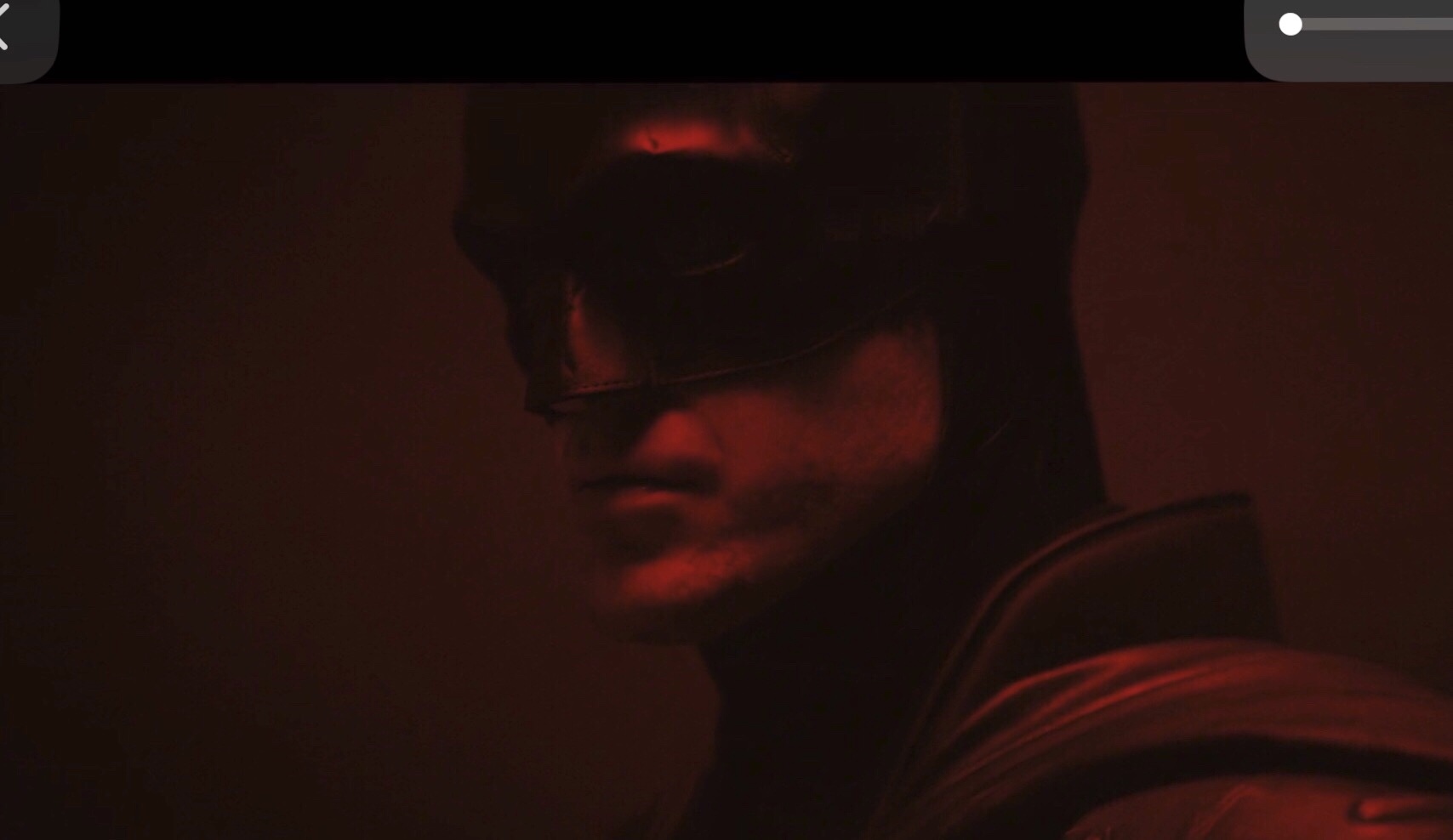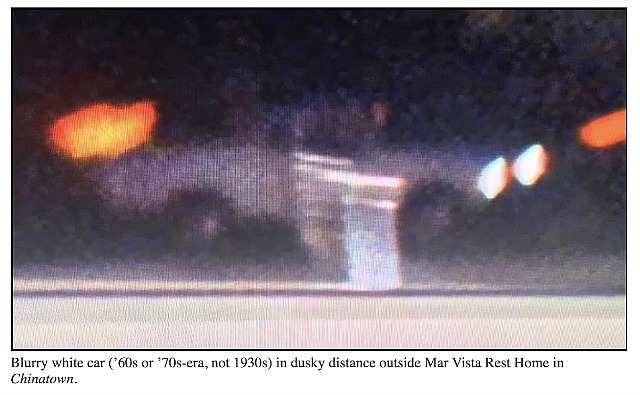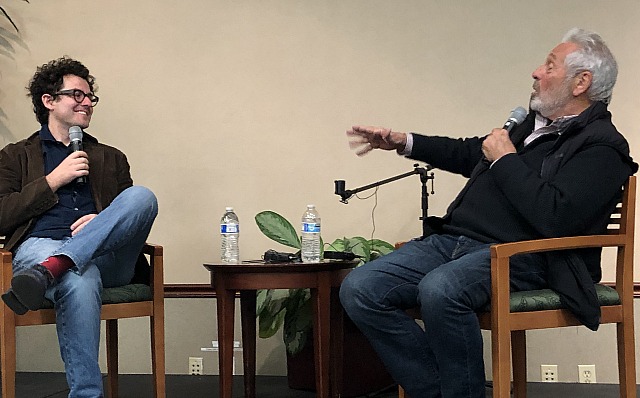

Anya, our Siamese female, is nearly three years old. I should have gotten her “fixed” early on but I didn’t. She became pregnant in late ’18, and delivered a litter of dark gray kittens a little more than a year ago. I don’t want that to happen again, largely because spayed female cats live about 40% percent longer than unspayed ones. It also lessens the risk of developing breast, mammary, ovarian and uterine cancer. Regularly undergoing heat cycles — on top of birthing litters — puts a female cat through all kinds of stress. Plus spayed females are less likely to roam around. Common knowledge, right?
Tatyana, who never cared for a Siamese before Anya, is unconvinced. She believes that because spaying tends to calm females down and make them less anxious and hormonal, this will cause Anya to lose her lively personality. I’ve pointed out that she’ll be the same cat, but less hyper. I don’t think there’s anything to discuss here, but Tatyana is asking me to ask readers with cats to please chime in.

This scene between Kirk Douglas and Adolphe Menjou in Paths of Glory is great because of two things that aren’t quite right. One, the fact that Douglas barely has the air to finish “and you can go to hell before I apologize to you now or ever again!” (an acting no-no) makes it even better than if he hadn’t run out of breath. And two, Menjou completely blows his line by saying “Colonel Dax, you will apologize at once or I shall be placed under arrest.” And yet Kubrick used it anyway. Until this moment nobody ever said boo.
This aside, Douglas’s delivery of the line “I may be many things but I’m not your boy” may be the finest acting moment of his career. He does it perfectly with the look of revulsion honed to a T.
A special screening of Paths of Glory happened in the Arclight a couple of nights ago. I ducked in at the very end and there were maybe 40 people seated.
You can sense something a tiny bit rote from this trailer for The Burnt Orange Heresy (Sony Pictures Classics, 3.6). A seemingly refined, intelligent, cynical thriller of sorts, but the crickets are calling it a half-and-halfer. Then again I’m a total sucker for Italy’s lake district. The last time I was there was in ’03, when the boys and I visited the Locarno Film Festival. Dripping, sweltering heat.
Posted by THR‘s Boyd van Hoeij on 9.8.19: “A spiky romance laced with art-history references and the trappings of a sleekly elegant neo-noir, The Burnt Orange Heresy is a mutt of sorts but no less a pleasure to spend some time with — even if petting it might not be advisable.
“This classy adaptation of Charles Willeford’s best noir novel, originally published in 1971, changes the location from the Everglades to the shores of Lake Como, where a European art critic and his American weekend fling visit a rich collector and meet the hermit artist who lives on his estate.”
I hate to say this, but Mick Jagger seems a tiny bit…I’m reluctant to say it. I’ve chatted with him once or twice and realize that he’s no strapping six footer, but even so he seems a bit shorter and older in this. Is that fair to say? Or am I projecting on some level? We all get older, we all change. I don’t know why I just wrote this.
I won’t see The Burnt Orange Heresy for another two and a half weeks. A 3.2 screening at Hollywood’s Linwood Dunn theatre followed by a post-screening reception with The Square‘s Claes Bang, six-foot-three Elizabeth Debicki and director Giuseppe Capotondi.
In my humble opinion, Diao Yinan‘s The Wild Goose Lake (Film Movement, 3.6 NYC, 3.13 L.A.) is one of the most visually inventive, brilliantly choreographed noir thrillers I’ve ever seen. One of them surely. I’ve only seen this audaciously novel and nervy film once (nine months ago in Cannes) but I’m looking forward to a second viewing this weekend.
I realize that I’m not “allowed” to have an opinion like this because I’m a Chinese cinema dilletante, but I love what I love so stuff it.
From last May’s (5.18) review: “I probably haven’t felt this knocked out, this on-the-floor, this ‘holy shit’-ified by sheer directorial audacity and musicality since Alfonso Cuaron‘s Children of Men.
“I wasn’t even following the convoluted story all that closely and I didn’t care all that much — The Wild Goose Lake is so deliciously composed, such an audacious high-wire act that you can just watch it for the imaginative visual poetry and off-center creative strategies alone.”
Moody, damp and noirish, it’s basically a tough-loner-on-the-run thriller. Zhou Zenong (Hu Ge) is a gangster wounded after a slug-out and shoot-out with several like-minded baddies, which results in a wounding as well as the death of a local cop. He gradually hooks up with a prostitute, Liu Aiai (Gwei Lun Mei) who works for Zhou’s boss, Hua Hua (Qi Dao), and whose base loyalties are in question.
The atmosphere is gloomily nourishing at every turn — pitch-black alleys, shadowed tunnels, down-at-the-heels apartment buildings, more shadows, rain-soaked streets, budget restaurants, grimy awnings, fire escapes, etc.
There’s simply no question that Diao, 50, is a flat-out cooking genius — a master of atypical framing and selective cutting, ultra-inventive action choreography, imaginative use of shadows and silhouettes and a guy who knows how to end a sex scene with real style. He’s a major arthouse director working within the confines the action genre, and at the same time breaking out of the bonds of that genre and almost setting it free.
Goose Lake was shot in Wuhan, the epicenter of the Chinese corona virus epidemic. It’s also performed in Wuhan dialect instead of standard Mandarin Chinese, which means that Chinese audiences have had to read subtitles along with other outside cultures.
Ever since Asian crime thrillers became a big deal in the early ’90s, fans have been saying to skeptics “don’t worry about the silly plots and the cliched, half-assed characters…just concentrate on the wonderful action-flick chops and choreography…just surrender to that.”
I always waved off that jive. A movie has to have compelling characters, a believable milieu and a strong emotional undercurrent. But now, for the first time, I understand that fervor, that fuck-it rationale.
Partly for the crime of handing out 12 Cesar nominations to Roman Polanski‘s An Officer and a Spy, and partly for insufficient nursing of political ties with feminist or #MeToo-supporting filmmakers, the Cesar Academy has announced its intention to resign following the 45th Cesar Award telecast on 2.28.
Variety excerpt: “In recent weeks, the Cesar Awards have been faced with mounting pressure within the French film industry and threats of a boycott. Many industry executives have highlighted a lack of gender parity, diversity and transparency within the Cesar’s voting body, as well as within the academy itself. [On top of which] Alain Terzian, a French producer who presides both the Association for the Promotion of Cinema and the Cesar Academy, is also expected to resign.”
Translation: The French film industry’s new guard has banded together to throw out the old guard over sensitivity and gender equality issues — i.e., being blind to or resisting present-day values. Or, put another way, a failure to (a) embrace woke-think and woke-speak and (b) to allow the industry to have more of a democratic participation in the organization.
Which is all well and good but don’t kid yourself — if it hadn’t been for the 12 nominations handed out to An Officer and a Spy, this shakeup probably wouldn’t have happened.
A petition to overhaul the awards, which was unveiled on Tuesday in the newspaper Le Monde, was signed by 400 industry notables including actors Lea Seydoux and Omar Sy, directors Michel Hazanavicius, Eric Toledano, Jacques Audiard, Arnaud Desplechin and Olivier Nakache, and producer Said Ben Said.
Petition excerpt: “The Cesar Academy comprises 4700 members…but as members, we don’t have a say when it comes to the functioning of the Academy…or the actual ceremony.”
Further translation of Le Monde petition: “The Cesar Academy’s failure to judge Polanski’s film according to political currents, as opposed to purely artistic criteria, requires harsh measures.”
Last night’s “Big Goodbye” discussion at Burbank’s Buena Vista Branch Library went nicely. A sizable crowd attended, and author Sam Wasson and Chinatown assistant director (and subsequent hotshot producer and author of “Magic Time: My Life in Hollywood“) Hawk Koch kept things frank and lively.
Chinatown is properly regarded as one of the most historically fastidious period films ever made, and yet there’s one small blunder at the end of the Mar Vista rest home scene. As Jake Gittes climbs onto the running board of Evelyn Mulray’s moving convertible as “the midget” pulls a gun and fires, you can spot a ’60s or ’70s-era white car driving along a boulevard in the dusky distance, 70 or 80 yards away.
And so, following my usual inclinations, I asked Koch if he knew of any insignificant errors aside from this one. He questioned the white car claim — i.e., “Are you sure? Then I didn’t do my job.” By all accounts Koch did a splendid job. Little errors like this happen all the time. (My initial posting of the white car photo happened a couple of years ago.)

